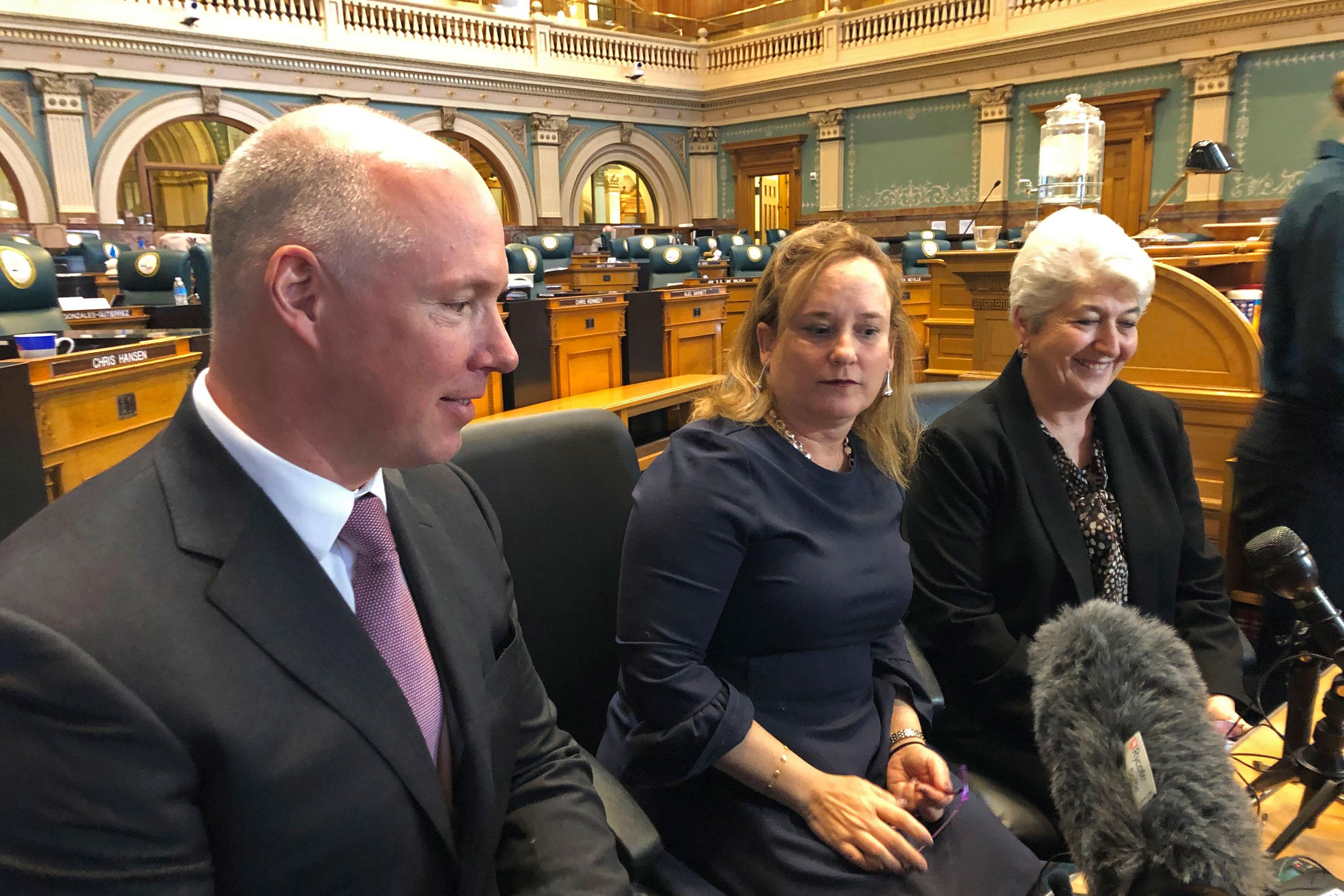

Colorado’s Democratic House speaker said Wednesday she wants to ask voters this November if the state government can keep excess tax revenue to spend in future years on underfunded roads and schools.
A bill would ask voters if the state can keep revenue it currently is required to return to taxpayers under the 1992 Taxpayer’s Bill of Rights, Rep. KC Becker told reporters. A companion bill would allocate any of that excess revenue in thirds to transportation infrastructure, K-12 schools and higher education each year.
Coloradans voted in 2005 to let the state avoid tax refunds for a five-year period. The new ballot question would make the change in tax law permanent, Becker said.
- Want (Need) To Know More About TABOR? Listen To The Taxman Podcast
Becker called the initiative “a common-sense first step,” but not a permanent solution, to investing in schools and roads that have been underfunded for years because of Colorado’s inability to raise taxes without voter approval.
Democratic Sen. Lois Court and Republican Sen. Kevin Priola joined Becker in announcing the initiative. They said they hoped they could build bipartisan support in the Democrat-controlled Legislature. Becker read a message from Democratic Gov. Jared Polis endorsing it.
Colorado voters consistently have rejected ballot measures asking them to raise state taxes for education and other priorities. In November, they defeated an education tax hike and competing measures to raise money for the state’s aging road network.
The constitutional amendment known as TABOR allows government to ask voters to raise taxes or keep excess revenue. Many local municipalities have done so. In November, voters in suburban Lakewood authorized the city to keep excess revenue for public safety and other purposes.
TABOR sets an annual income limit that can trigger tax refunds based on a formula that involves population and inflation. It’s blamed by many Democrats for contributing to a $9 billion backlog in road projects and a multimillion-dollar debt to schools — all at a time when Colorado’s economy is one of the nation’s strongest.
Colorado Republicans, in contrast, credit TABOR and its tax limits for the strong economy.
Assistant House Minority Leader Kevin Van Winkle called TABOR “an important safeguard against government overreach” in a statement opposing the ballot proposal.
The amount to be retained should a November ballot question pass isn’t known. Becker cited legislative and executive branch forecasts released last week that suggest growth could slow over the next two to three years in part because of trade disputes initiated by the Trump administration and global economic uncertainty.
Republicans began this legislative session wanting to build on a bipartisan effort last year that could generate $2.8 billion for transportation through bonding and direct spending. That measure will go before voters in November. If it fails, a 2017 law kicks in authorizing $1.9 billion in bonding for roads.
Priola said he hopes to generate Republican support for Wednesday’s initiative. He noted that Colorado hasn’t raised its 22-cents-per gallon state gasoline tax, a primary funding source for roads, since 1993.
“The power of TABOR is that you can go to the voters and let the voters decide,” Priola said.








